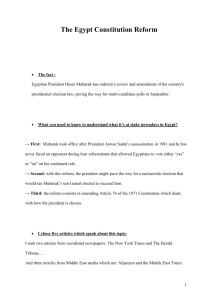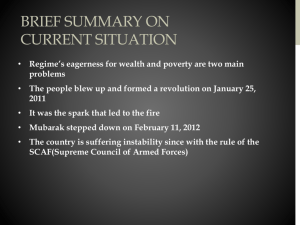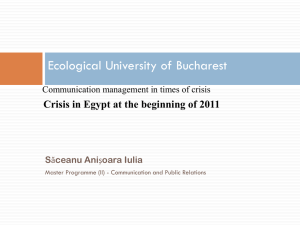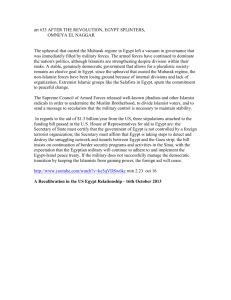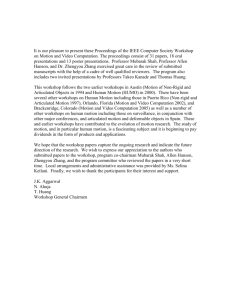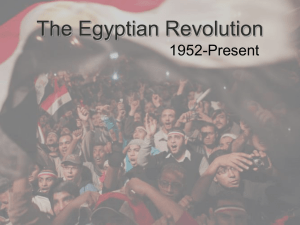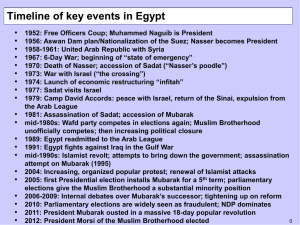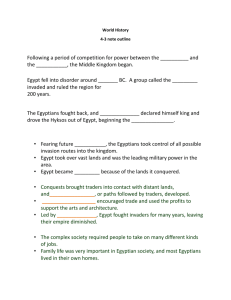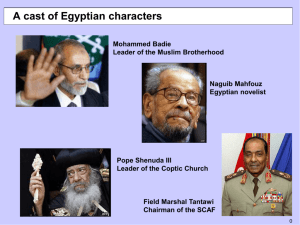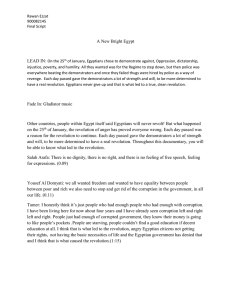Gerges_F_The Hill_021611_Egypt
advertisement
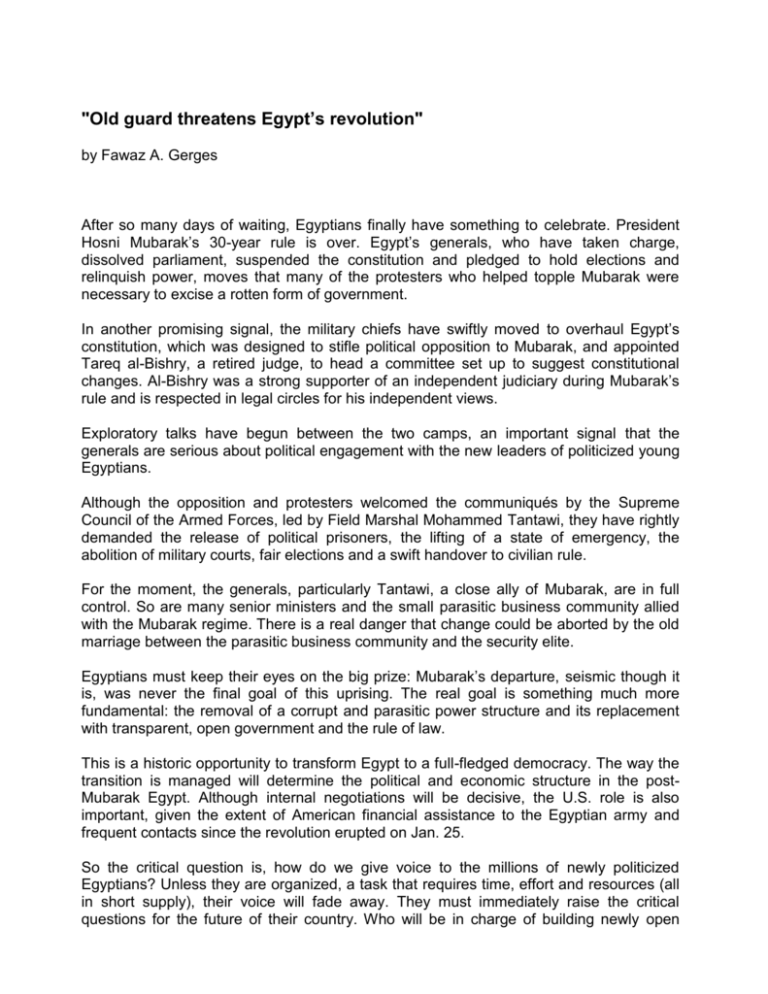
"Old guard threatens Egypt’s revolution" by Fawaz A. Gerges After so many days of waiting, Egyptians finally have something to celebrate. President Hosni Mubarak’s 30-year rule is over. Egypt’s generals, who have taken charge, dissolved parliament, suspended the constitution and pledged to hold elections and relinquish power, moves that many of the protesters who helped topple Mubarak were necessary to excise a rotten form of government. In another promising signal, the military chiefs have swiftly moved to overhaul Egypt’s constitution, which was designed to stifle political opposition to Mubarak, and appointed Tareq al-Bishry, a retired judge, to head a committee set up to suggest constitutional changes. Al-Bishry was a strong supporter of an independent judiciary during Mubarak’s rule and is respected in legal circles for his independent views. Exploratory talks have begun between the two camps, an important signal that the generals are serious about political engagement with the new leaders of politicized young Egyptians. Although the opposition and protesters welcomed the communiqués by the Supreme Council of the Armed Forces, led by Field Marshal Mohammed Tantawi, they have rightly demanded the release of political prisoners, the lifting of a state of emergency, the abolition of military courts, fair elections and a swift handover to civilian rule. For the moment, the generals, particularly Tantawi, a close ally of Mubarak, are in full control. So are many senior ministers and the small parasitic business community allied with the Mubarak regime. There is a real danger that change could be aborted by the old marriage between the parasitic business community and the security elite. Egyptians must keep their eyes on the big prize: Mubarak’s departure, seismic though it is, was never the final goal of this uprising. The real goal is something much more fundamental: the removal of a corrupt and parasitic power structure and its replacement with transparent, open government and the rule of law. This is a historic opportunity to transform Egypt to a full-fledged democracy. The way the transition is managed will determine the political and economic structure in the postMubarak Egypt. Although internal negotiations will be decisive, the U.S. role is also important, given the extent of American financial assistance to the Egyptian army and frequent contacts since the revolution erupted on Jan. 25. So the critical question is, how do we give voice to the millions of newly politicized Egyptians? Unless they are organized, a task that requires time, effort and resources (all in short supply), their voice will fade away. They must immediately raise the critical questions for the future of their country. Who will be in charge of building newly open institutions? And can the military chiefs possibly sacrifice their economic interests to install more pluralistic, democratic values — or will they fight to the end to preserve the status quo under different disguises? For all the dangers, no one should underestimate how powerful a moment this is. The departure of Mubarak marks the beginning of the fall of the authoritarian wall in the Arab world. Mubarak was the public face of political authoritarianism in the region: he has built one of the most feared security forces in the world, numbering almost 1.5 million. The events since Jan. 25 have created a sense of empowerment that has swept Arab societies on every level. From Algeria to Iran, a non-Arab country, the ripple effect of the Egyptian revolution is shaking Middle Eastern dictators to their foundation. In Egypt itself the victory has been sudden, and only the night before it seemed a long way away. The old guard has been trying hard to find ways of keeping Mubarak in power. The Army and the Americans, perhaps, made the difference. It was the army statement after Mubarak’s last defiant speech that made it clear they were telling the dictator, “It’s not working any more.” And yet they have fought tooth-and-nail to keep the system in place, to keep the reforms incremental, to sustain the system under which they have risen so high. Until the very last moment, I don’t believe Mubarak had any intention of leaving: he and Omar Suleiman simply did not understand the gravity of this crisis. Instead, they treated a cancer as migraine. But in the power structures that have been left behind, some vestiges of the sickness remain. Egypt will not truly be cured until the entirety of the old regime is gone. Gerges is the director of the Middle East Center at the London School of Economics, London University.
